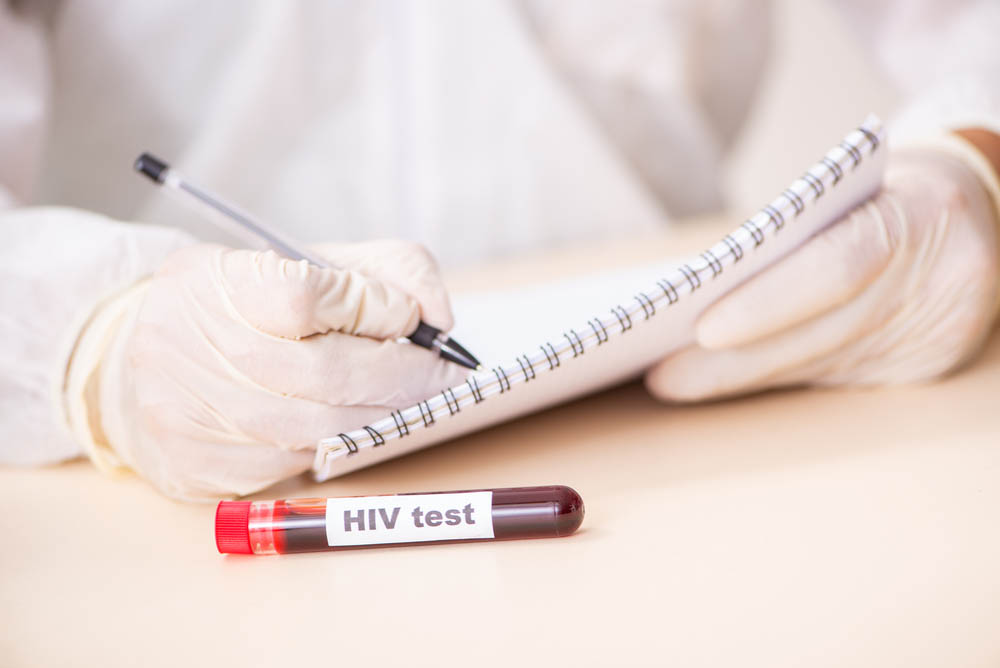Nova Scotia is seeing significant advancements in making HIV testing services more accessible and available. With the province’s ongoing efforts to curb the spread of HIV and help those living with the virus, understanding the options for HIV testing, including the convenience of free HIV home testing, has never been more critical.
Here’s how you can do your part and get tested for HIV in Nova Scotia.
Free HIV testing in Nova Scotia
With early diagnosis, those living with HIV can significantly improve their quality of life. Nova Scotia offers a variety of testing sites, including clinics, laboratories and community centres that cater to the diverse needs of its population.
Free HIV testing clinics in Nova Scotia
The first step in taking control of your sexual health is knowing where and how you can access HIV testing services.
Nova Scotia boasts a network of clinics that offer free HIV testing in a confidential and supportive environment. These clinics are staffed by healthcare professionals who are sensitive to the needs and concerns of their clients, which provides a non-judgmental and informative experience.
Description
The Ally Centre of Cape Breton is a non-profit, community based organization whose main objectives are to employ education/prevention strategies that prevent the spread of blood borne pathogens and sexually transmitted infections, and to create supportive environments that diminish risk.
Address
75 Prince Street
Sydney, Nova Scotia
B1P 5J9
902-577-0140
Description
Stepping Stone is a charitable organization that provides services and support to current and former sex workers, people at risk of entering the sex trade, and people who identify as being trafficked.
Address
32 Primrose Street
Dartmouth, Nova Scotia
B3A 4C5
902-420-0103
https://steppingstonens.ca/
Description
Sexual Health Nova Scotia (SHNS) is a leading and expert voice around the issues of sexual and reproductive health.
Address
22637 Highway 7, P.O. Box 211
Sheet Harbour, Nova Scotia
B0J 3B0
902-885-3693
https://shns.ca/member-centres/sheet-harbour-sexual-health-centre/
Description
We strive to create an environment in which people living with and affected by HIV/AIDS feel empowered and supported. Our aim is to end stigma and discrimination, and reduce new cases of HIV.
Address
5516 Spring Garden Road, Suite 200
Halifax, Nova Scotia
B3J 1G6
902-425-4882
https://acns.ns.ca/
How to participate in the free HIV Testing
If you’re interested in getting tested, contact your local public health office or visit the Nova Scotia Health Authority’s website for information on the nearest testing clinic. Appointments can often be booked online or over the phone, with some clinics also offering walk-in options to accommodate varying schedules and preferences.
HIV testing options in Nova Scotia
Nova Scotia provides several HIV testing options to cater to your specific needs and circumstances. These options can help you decide which testing method is most suitable for you.
Private clinic. Private clinics offer confidential testing services, often with the option for anonymous testing.
Local lab. Some local laboratories provide HIV testing if you have a referral from a healthcare provider.

Community clinic. Community clinics are excellent resources for free and confidential testing, and they often have additional support services available.
At home. If you prefer privacy and convenience, at-home HIV test kits allow you to perform the test in the comfort of your home.
At-home HIV test
The at-home HIV test is a game changer in making testing more accessible. These kits can be ordered online or picked up from certain clinics and pharmacies.
As a private and convenient testing solution, you can choose to do the test whenever and wherever suits you best. Just collect a small sample of blood or oral fluid and then follow the instructions provided with the kit to get your result within minutes.
Frequently asked questions
Why get tested for HIV?
Getting tested for HIV is crucial for everyone, regardless of their perceived risk level. Early detection is key to managing HIV effectively, preventing its transmission and maintaining a healthy life. Testing also contributes to the broader effort to reduce the stigma associated with the virus and promote a culture of openness and awareness regarding sexual health.
Who should get tested for HIV?
Everyone should consider getting tested for HIV at various points in their life, especially if they have had unprotected sex, shared needles or have any other risk factors. Regular testing is recommended for those with multiple sexual partners, men who have sex with men and individuals with a history of drug use.
When should I be tested for HIV?
Get tested for HIV at least once as part of routine health care. However, if you engage in activities that increase your risk of exposure, more frequent testing—every three to six months—is recommended. Also, consider testing if you have symptoms that could indicate HIV infection or if you’re starting a new sexual relationship.
What if I test positive for HIV?
HIV is a manageable condition with the right care and treatment. The first step after a positive test is to seek confirmatory testing from a healthcare professional.
If confirmed, you’ll be connected with specialized care to manage the virus, including antiretroviral therapy (ART), which can significantly reduce the virus’s impact on your health and prevent transmission to others.




















































